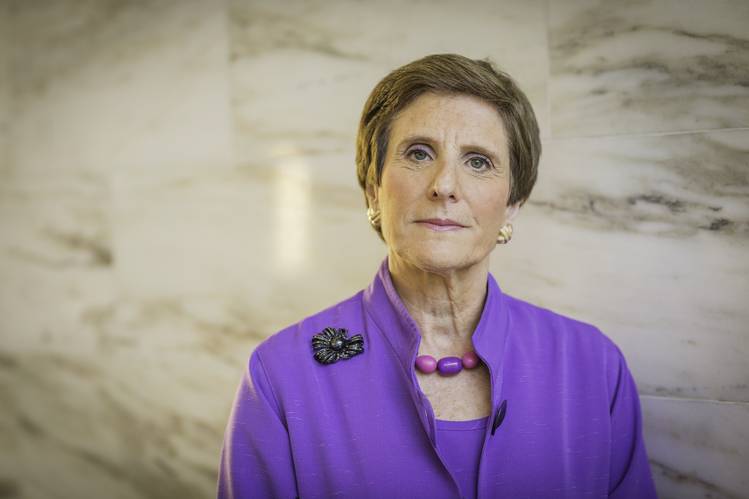
American businesswoman Irene Rosenfeld was the Chief Executive Officer and Chairman of food giant Kraft Foods Inc. and, after the company’s restructuring, of Mondelēz International, for 11 years. Under her watch, the firm expanded markets abroad and reorganized the marketing of its wide range of snack and grocery brands. Her business achievements led her to be listed by Forbes several times as one of the 100 most powerful women in the world.
Born in Westbury, New York in 1953 to an accountant father and a homemaker mother, she began her career by equipping herself with three degrees: a PhD in marketing and statistics, a Master of Science degree in business, and a Bachelor of Arts degree in psychology from Cornell University.
She started her career at the Dancer Fitzgerald Sample advertising agency and then in 1981 joined General Foods, conducting consumer research. The company was bought a few years later by cigarette maker Philip Morris and then merged with another of his acquisitions, Kraft Foods.
Rosenfeld climbed the corporate ladder at Kraft, but the higher she rose, the fewer women were by her side. “I grew up in the industry at a time when there weren’t that many women and in key positions,” she once explained. “There was always a sense that we needed to work just a little harder, and we had to stand up for ourselves in the face of managers who weren’t as respectful as they ought to have been.”
But this lack of support didn’t stop her. Over the years, she advocated for women in the workplace, with three of her female employees going on to become chief executives of major companies.
After a short 2-year stint at the Frito-Lay division of PepsiCo, she returned to Kraft in 2006 as CEO and then in 2007 as Chairman of the Board. In 2012, she split Kraft Foods into two companies, one selling grocery items in North America and the other one marketing snack products around the world, Mondelēz International, where she stayed on as Chairperson.
Until her retirement in 2017, she set about reviving the company by introducing new products, strengthening the company’s presence in emerging markets, and shaping the fates of iconic brands. Through bold moves, she cut costs, improved profit margins, and made billions for investors.
There is no wonder many call her a trailblazer in the food industry. And as a female CEO, she has without doubt been a steady supporter of women leadership in the organization.
